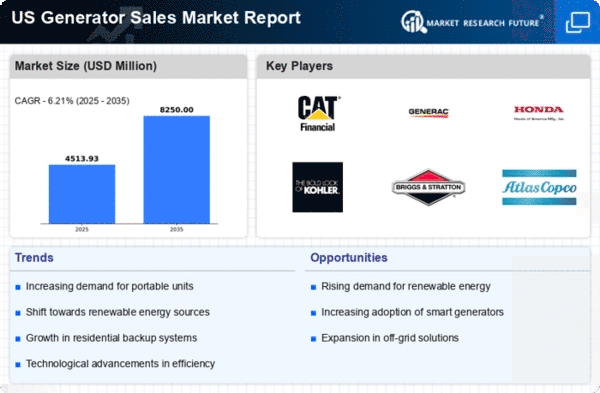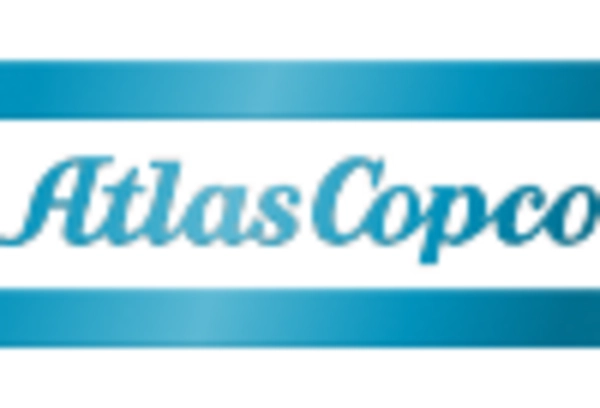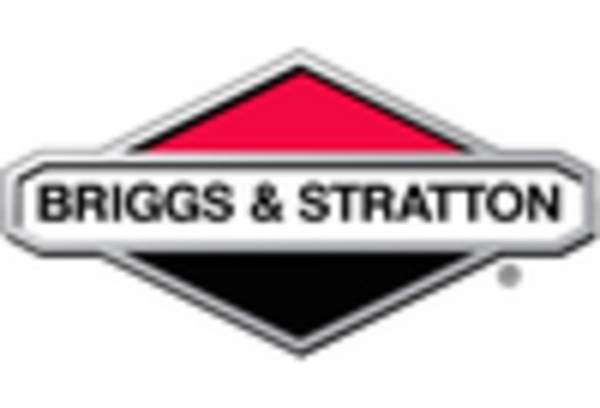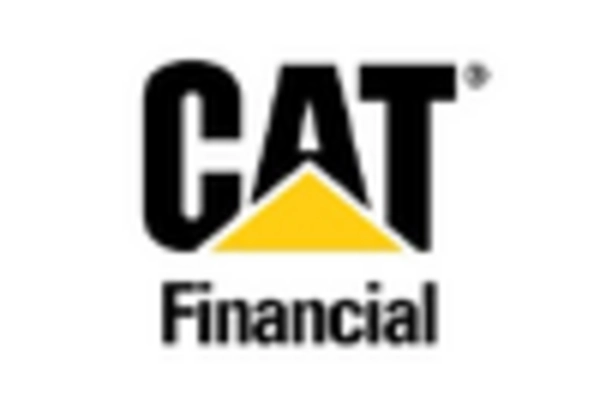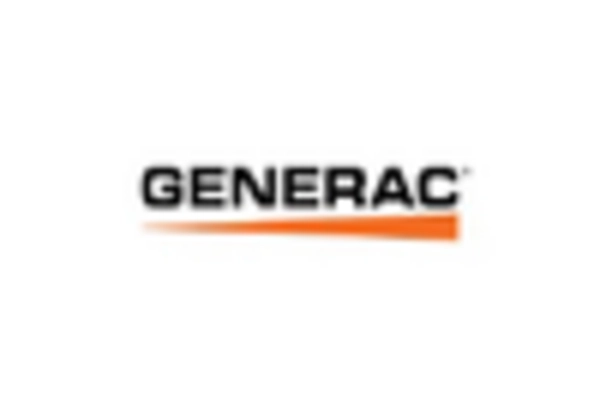Rising Energy Costs
The generator sales market appears to be influenced by the increasing costs of energy in the US. As utility rates rise, consumers and businesses are seeking alternative power solutions to mitigate expenses. This trend is particularly evident in regions where electricity prices have surged by over 15% in recent years. Consequently, the demand for generators, especially those that can provide reliable backup power during outages, is likely to increase. The generator sales market may see a shift towards more efficient and cost-effective models, as consumers prioritize long-term savings over initial investment. Furthermore, the potential for energy independence is driving interest in portable and standby generators, which can serve as a hedge against fluctuating energy prices.
Regulatory Support for Clean Energy
The generator sales market is also influenced by regulatory frameworks that promote clean energy solutions. In the US, various states are implementing policies that encourage the use of renewable energy sources, which may include hybrid generators that combine traditional fuel sources with solar or wind power. This shift towards cleaner energy options is likely to create new opportunities within the generator sales market. As consumers become more environmentally conscious, the demand for generators that align with sustainability goals may increase. Additionally, incentives such as tax credits for renewable energy investments could further stimulate sales, as consumers seek to comply with regulations while reducing their carbon footprint.
Natural Disasters and Climate Change
The generator sales market is significantly impacted by the increasing frequency of natural disasters in the US. Events such as hurricanes, wildfires, and severe storms have led to widespread power outages, prompting both residential and commercial customers to invest in generators. According to recent data, the US experienced a 30% increase in power outages over the past decade, underscoring the need for reliable backup power solutions. This trend suggests that the generator sales market may continue to grow as consumers prioritize preparedness and resilience against climate-related disruptions. Additionally, government initiatives aimed at disaster preparedness may further stimulate demand for generators, as communities seek to enhance their emergency response capabilities.
Technological Integration in Generators
The generator sales market is witnessing a transformation due to the integration of advanced technologies. Innovations such as smart generators, which can be monitored and controlled via mobile applications, are becoming increasingly popular. This technological advancement not only enhances user convenience but also improves efficiency and performance. The generator sales market is likely to benefit from the growing consumer preference for products that offer connectivity and automation. Furthermore, the incorporation of features like automatic transfer switches and remote diagnostics may appeal to both residential and commercial users, driving sales. As technology continues to evolve, manufacturers are expected to invest in research and development to meet the changing demands of consumers.
Increased Urbanization and Infrastructure Development
The generator sales market is experiencing growth due to the rapid urbanization and infrastructure development occurring in the US. As cities expand and new construction projects emerge, the need for reliable power sources becomes paramount. Urban areas often face challenges related to power supply stability, making generators an attractive option for both residential and commercial properties. The generator sales market may see heightened demand for portable and standby generators as construction sites and new developments require temporary power solutions. Furthermore, as urban populations grow, the reliance on generators for emergency power during outages is likely to increase, driving further sales in the market.


